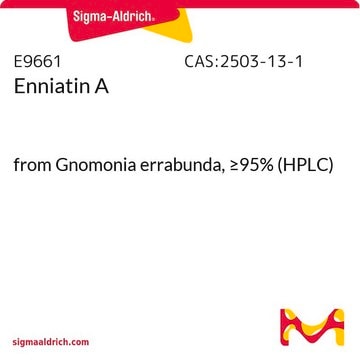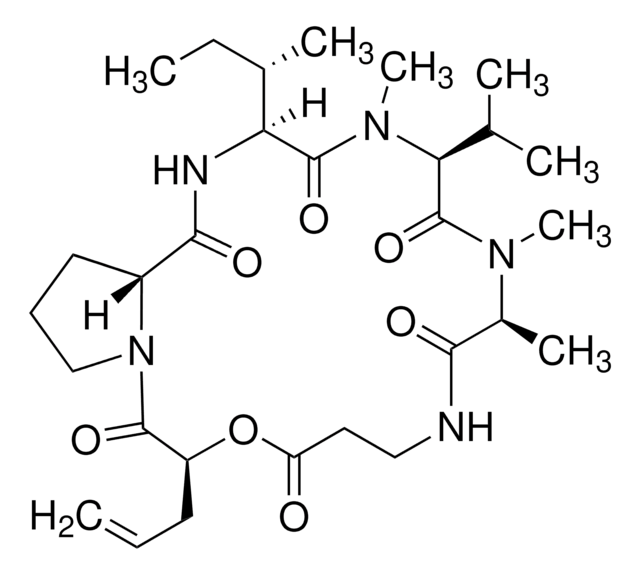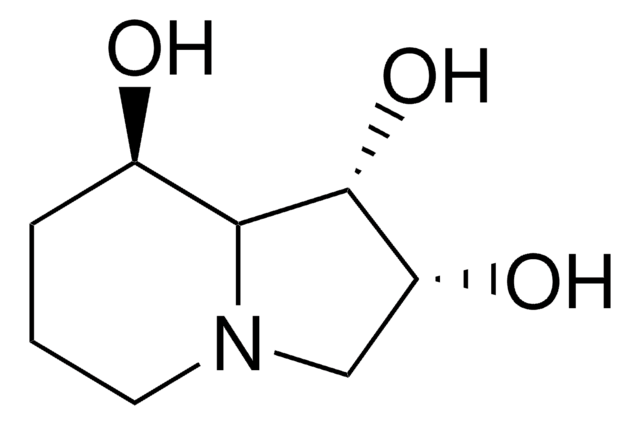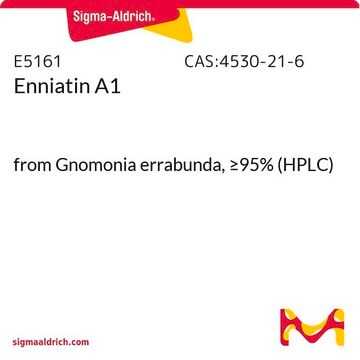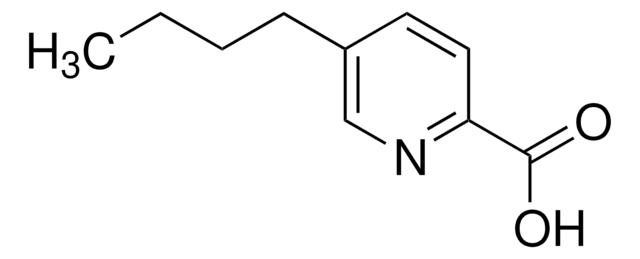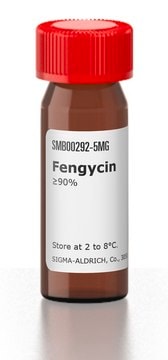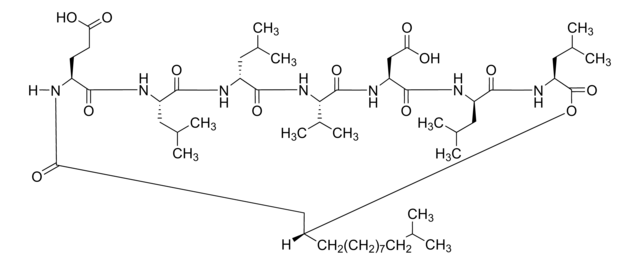B7510
Beauvericin
≥97% (HPLC), suitable for HPLC
Synonym(s):
cyclo(D-α-Hydroxyisovaleryl-L-N-methyl-Phe)3
About This Item
Recommended Products
Product Name
Beauvericin, ≥97% (HPLC)
Quality Level
Assay
≥97% (HPLC)
form
powder or crystals
technique(s)
HPLC: suitable
color
white to off-white
storage temp.
2-8°C
SMILES string
CC(C)C1OC(=O)C(Cc2ccccc2)N(C)C(=O)C(OC(=O)C(Cc3ccccc3)N(C)C(=O)C(OC(=O)C(Cc4ccccc4)N(C)C1=O)C(C)C)C(C)C
InChI
1S/C45H57N3O9/c1-28(2)37-40(49)46(7)35(26-32-21-15-11-16-22-32)44(53)56-39(30(5)6)42(51)48(9)36(27-33-23-17-12-18-24-33)45(54)57-38(29(3)4)41(50)47(8)34(43(52)55-37)25-31-19-13-10-14-20-31/h10-24,28-30,34-39H,25-27H2,1-9H3
InChI key
GYSCAQFHASJXRS-UHFFFAOYSA-N
Looking for similar products? Visit Product Comparison Guide
General description
Application
Biochem/physiol Actions
Packaging
Storage Class Code
11 - Combustible Solids
WGK
WGK 3
Flash Point(F)
Not applicable
Flash Point(C)
Not applicable
Personal Protective Equipment
Choose from one of the most recent versions:
Already Own This Product?
Find documentation for the products that you have recently purchased in the Document Library.
Customers Also Viewed
Our team of scientists has experience in all areas of research including Life Science, Material Science, Chemical Synthesis, Chromatography, Analytical and many others.
Contact Technical Service
